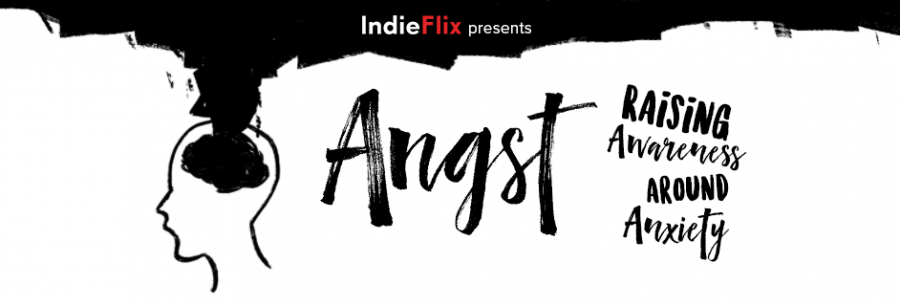‘Angst’ and coping with anxiety
anx·i·e·ty
noun
- a feeling of worry, nervousness, or unease, typically about an imminent event or something with an uncertain outcome.
The following are real definitions by current Cary-Grove students:
“A feeling in your chest causing it to feel like a weight you can’t take off.”
“Feeling out of control and powerless over minor things others may see as stupid. It can be little things that don’t feel ‘right’, or your thoughts constantly being filled with worries that are mostly irrational.“
“A small monster that’s always trying to get past you. No matter what you’re trying to do, it’s always rushing to do it first. It can stay small, but it can grow. The more you think of it, the larger it grows. The larger it grows the faster it gets.”
My personal definition of anxiety is like having gum on the bottom your shoes. Hard to scrape off, follows you everywhere, and just when you think it’s gone, you step right into another pile.
Sometimes it’s triggered by events or situations, and other times it happens out of the blue. It’s not something I can control or flip on and off like a switch- no matter how often I wish I could.
For some people, anxiety is the only constant in a world of change. It lurks behind every exam, every hallway passing period, and every uncertain situation. For others, it can comes in waves so fast and so strong you feel like you’re on the edge of being ripped away by the current.
Regardless of how people experience anxiety, we all feel feel the occasional nervousness. This is a perfectly normal, and healthy, response to stressful situations. It’s not until it becomes a roadblock we can’t find our way around of that it becomes a problem.
But enough rambling about the particular definition. It is not the definition that holds us back, but rather what brings us to the definition in the first place.
Anxiety does not discriminate. It can get the best of any of us, at any time and at any place. We are so caught up in the idea of only the quiet or shy kids are capable of anxiety and only war veterans are capable of PTSD.
In reality, it could be the all-star football player on the team who can’t sleep the night before a big game. It could be the easy-going art kid who has to return to a stressful homelife. It could be the straight-A student who studies for hours only to show up to the test blanking on the very topics they meticulously went over all night.
It could even be the person sitting next to you. Your neighbors, your closest friends, your family, your coaches and teachers. All of them experience and cope with anxiety in different ways.
Cue Angst, a 2017 documentary on anxiety. Perhaps the most important takeaway from the film is the differentiation it creates between feeling nervous vs. having an anxiety disorder.
The film showed teenage kids who experience anxiety and taught a variety of coping mechanisms. Whether it’s holding ice cubes, snapping fingers, or jotting down thoughts, it provided simple ways to handle anxiety on our own.
Most importantly, it emphasized the importance of going through your challenges, not just avoiding them. It stressed the significance of ruling anxiety, and not letting it rule you.
Refuse to let your fear control you. You own anxiety. It does not own you. You are not the sum of your flaws or the mistakes you make.
Mental illness may be a part of us, but we are not a part of it. Having mental illness is not what defines us. It’s how we move forward and continue life that does.
If you or someone you know is struggling with mental health, use these resources to help:
National Suicide Hotline: 1-800-273-8255
Trevor Project (LGBTQ+ Hotline) : 1-866-488-7386
National Eating Disorder and Association: 1-800-931-2237
Domestic Violence Hotline: 1-800-799-7233
McHenry County Crisis Program: 800-892-8900
Mrs. Fisher, one of the social workers at Cary-Grove, recommends the following to help yourself and the people in your life through anxiety:
-Physical health and mental health are the same. Take time to care for yourself emotionally just as you would physically.
-Practice self-care and it will become a habit
– Attend a group run by student services or schedule an appointment with any of the social workers
-Changing the topic, going for a walk, and talking through the situation are great ways to support a friend
-Remember that your role is being a supportive friend, not a parent or therapist. Encourage your friend to talk to a mental health professional or trusted adult.
–you are not solely responsible for a single individual’s happiness

